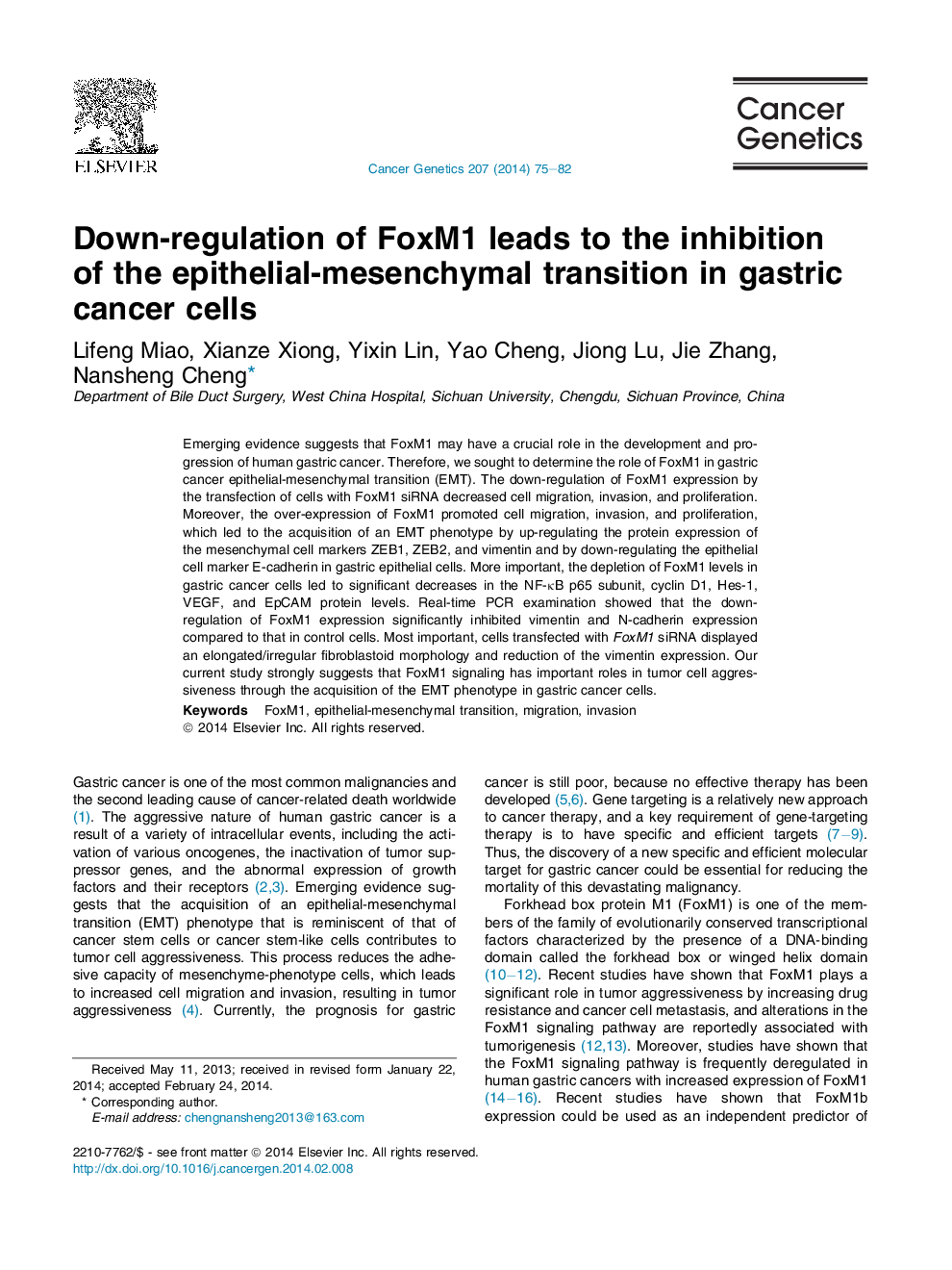| Article ID | Journal | Published Year | Pages | File Type |
|---|---|---|---|---|
| 2110087 | Cancer Genetics | 2014 | 8 Pages |
Emerging evidence suggests that FoxM1 may have a crucial role in the development and progression of human gastric cancer. Therefore, we sought to determine the role of FoxM1 in gastric cancer epithelial-mesenchymal transition (EMT). The down-regulation of FoxM1 expression by the transfection of cells with FoxM1 siRNA decreased cell migration, invasion, and proliferation. Moreover, the over-expression of FoxM1 promoted cell migration, invasion, and proliferation, which led to the acquisition of an EMT phenotype by up-regulating the protein expression of the mesenchymal cell markers ZEB1, ZEB2, and vimentin and by down-regulating the epithelial cell marker E-cadherin in gastric epithelial cells. More important, the depletion of FoxM1 levels in gastric cancer cells led to significant decreases in the NF-κB p65 subunit, cyclin D1, Hes-1, VEGF, and EpCAM protein levels. Real-time PCR examination showed that the down-regulation of FoxM1 expression significantly inhibited vimentin and N-cadherin expression compared to that in control cells. Most important, cells transfected with FoxM1 siRNA displayed an elongated/irregular fibroblastoid morphology and reduction of the vimentin expression. Our current study strongly suggests that FoxM1 signaling has important roles in tumor cell aggressiveness through the acquisition of the EMT phenotype in gastric cancer cells.
